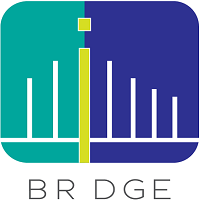Invest In SMEs’ Potential Upside As Singapore Relaxes Dine-in Restrictions
It has been roughly two weeks since the Singapore government lifted dine-in restrictions to allow for further reopening. In the latest MOH dine-in restriction guidelines, dine-in group sizes have increased from five to 10, and live music can resume again. Sale and consumption of alcohol after 10.30pm at F&B businesses can resume on 29 March, 2022.
Further, all nightlife businesses such as nightclubs are allowed to resume operations by April 19.
These are welcome reopening measures for small and medium-sized enterprises (SMEs), especially for those in the F&B and entertainment sectors. However, according to some recent news reports, businesses are also worried about manpower shortage in Singapore to cope with the influx of patrons.
After all, the announcement came suddenly after almost two years of restrictions on dining in, live music, and alcohol after 10.30pm. On the first day, 29 March, which was a Tuesday, groups of customers already packed bars for late-night drinks, according to a Today report.
A high level of pent-up demand will be released over the following weekends as Singaporeans head out to socialise and meet with friends and families in bigger groups. This means that restaurants will need to readjust opening hours and ensure that there are enough staff to cover shifts, and stock up their inventories of food supplies.
Inflation driving up operating costs
Compounding the issue of manpower shortage is inflation, which has led to higher operating costs. For instance, the costs of electricity and food supplies have been on the rise since February. Oil prices are going up as the Russia-Ukraine war persists. In the next quarter, electricity tariffs will go up by about 10%.
While middle- to lower- income households living in HDB flats will have the U-save voucher to defray costs, small businesses do not enjoy such extensive subsidies. Commercial users do have the Temporary Electricity Contracting Support Scheme (Trecs), introduced in February 2022, that will allow them to pay for electricity at a capped rate of 3.97 cents per kilowatt hour (kWh). However, such contracts are limited.
Additionally, costs of ingredients and food supplies are becoming more costly. Take for instance, global inflation has inflated chicken feed prices and logistic costs, causing rising egg prices. In Singapore’s supermarkets, a tray of 30 eggs costs $7.20, up from $6.15 month on month. Such price inflation will invariably affect profit margins.
In the face of rising operating costs, SMEs have two choices. They either have to bear the rising costs, which will impact their profit margins, or raise prices and affect customer satisfaction and overall revenue. It’s a tough choice to make.
Additionally, costs of ingredients and food supplies are becoming more costly. Take for instance, global inflation has inflated chicken feed prices and logistic costs, causing rising egg prices. In Singapore’s supermarkets, a tray of 30 eggs costs $7.20, up from $6.15 month on month. Such price inflation will invariably affect profit margins.
SME working capital loan via P2P crowdfunding platform
During this transition, an SME working capital loan can help to tide things over. P2P crowdfunding platforms like BRDGE can help to bridge investors with SMEs. SMEs can access loans at lower interest rates, while investors can earn potential returns.
A much-needed injection of capital can help businesses stay afloat, helping them to pay their staff, rental, and inventory, while they work to reap the potential harvest that will come with further reopening measures. Indeed, in the following months, restaurants, bars, food manufacturers, and a host of other SMEs, will see good opportunities to grow and expand.
If a small business does not get the necessary working capital to tide over the transition period, it will simply have to fold and miss out on the abundant opportunities for growth. We already see examples of such casualties. Most recently, restaurant group No Signboard closed its Esplanade outlet. As it will take a few more months before travel returns to pre-COVID levels and the outlet is heavily reliant on tourism, the company’s board believes that it is better to reduce the operating costs by shutting it. Other F&B brands under No Signboard, like Little Sheep Hotpot at Orchard Gateway and No Signboard Sheng Jian at Northpoint City will continue to operate.
Invest in SMEs as Singapore reopens
For retail investors with extra cash, reopening measures also point to more opportunities to invest. Businesses are hungry for capital to help them capitalize on the surge in demand. MAS-licensed crowdfunding platform BRDGE can help you identify the businesses to invest in.
As Singapore continues to move towards endemic living, the country will continue to open up. From April 1, all vaccinated individuals can enter Singapore without quarantine or the need to book vaccinated travel lane (VTL) flights. Additionally, the government has announced that safe resumption of nightlife and KTV outlets will be allowed from April 19.
Businesses in the retail, F&B and tourism sectors, which have been hard hit by COVID-19, will be able to become fully operational soon. You can capitalize on this trend.
Become a P2P investor with BRDGE today. BRDGE is a Singapore-based P2P lending and equity crowdfunding platform. Licensed by MAS since 2017. It currently has over 17,000 retail investors, backing 252 SMEs with funds between $20k to $250k per portfolio and has successfully funded over $74.7 million in total. The fast-growing community of investors and SMEs is enabled by an easy investment process for investors and a simple onboarding process for SMEs.


Get the guide now!
Get the guide now!